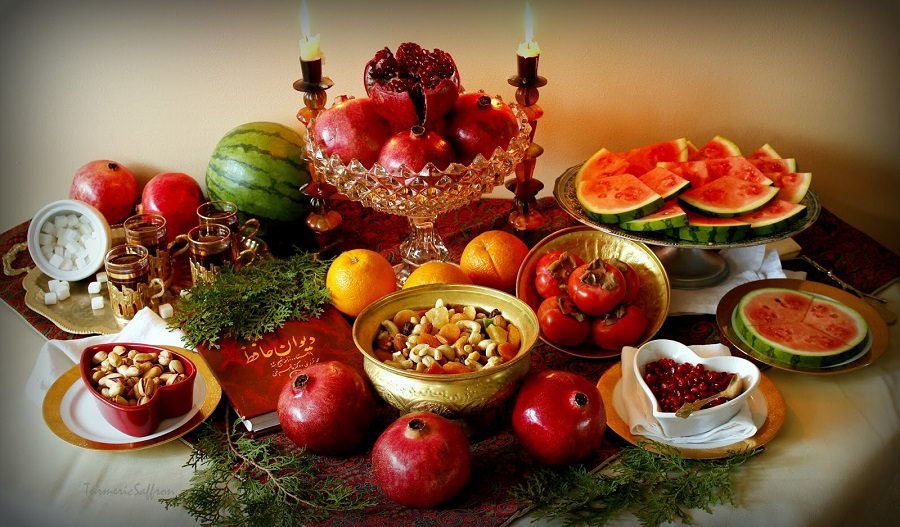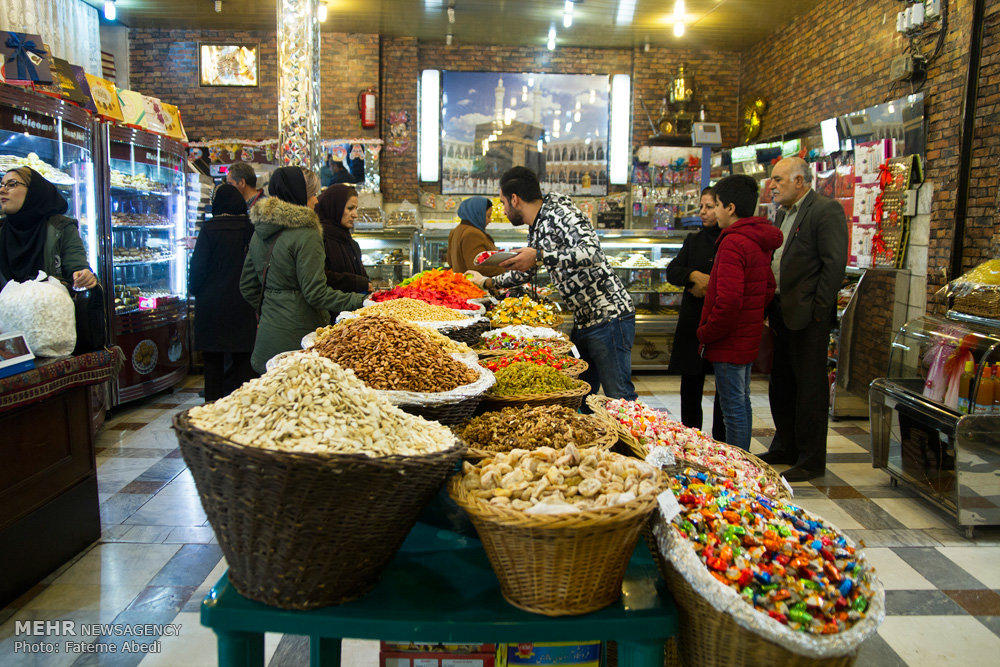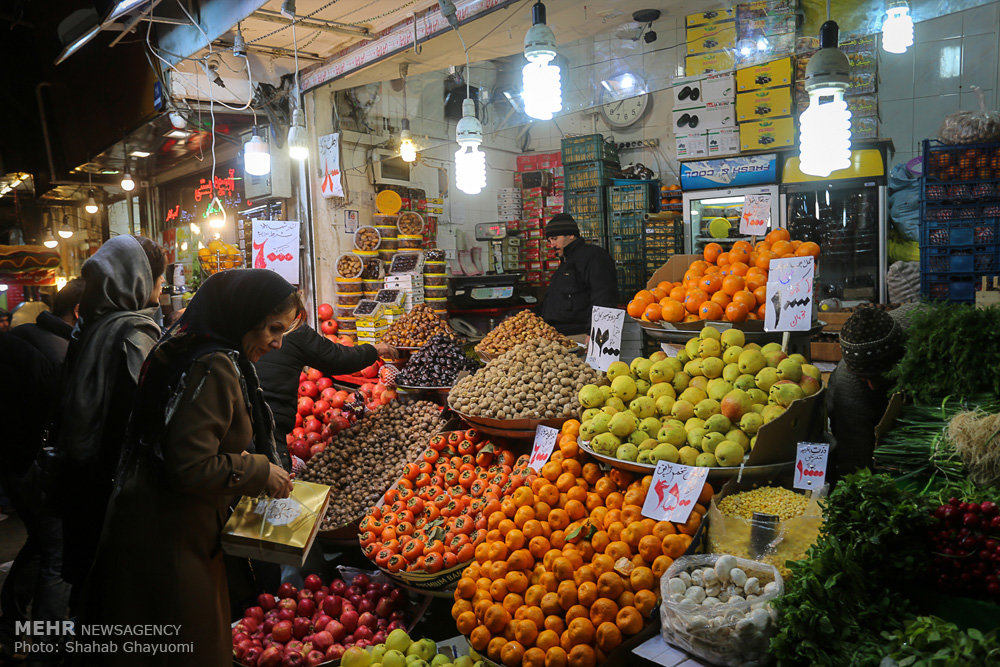While people from many countries across the world are currently getting ready for Christmas, people in Iran are looking forward to another kind of festivity: Yalda Night. It has a nice ring to it, and the whole premise behind it is actually pretty cool, too. To put it in a nutshell, Yalda is the longest […]
While people from many countries across the world are currently getting ready for Christmas, people in Iran are looking forward to another kind of festivity: Yalda Night.
It has a nice ring to it, and the whole premise behind it is actually pretty cool, too. To put it in a nutshell, Yalda is the longest and darkest night of the year (or more scientifically, a winter solstice celebration which falls on Dec. 21) when people stay up late and eat a lot. Not exactly a healthy celebration, to be sure, but then again, the fun ones never are.
And let me be honest with you, here; Yalda is really fun. Probably even more fun than our Norouz where we celebrate the coming of a new year. Maybe because it is just for one night and doesn’t drag on for thirteen days as our new year holidays do. And it is not exactly a holiday in the sense that you get to have a day off. But this year, Yalda has fallen on Thursday, which is a weekend day in Iran, so people are even more hyped for it.
So what happens on the days leading up to Yalda?
People get a lot of shopping done. And what do they buy? Probably anything they can eat. But then, some of those things are symbolic and you just can’t celebrate Yalda without them. The most important one that under no circumstances are you allowed to skip on is…watermelon.
Iranians have a special kind of affinity with watermelons. The country is the second top producer of watermelons in the world after China (which really doesn’t count, because China is the first in almost any kind of production, so let’s move on), and while $130 million worth of watermelons are exported to neighboring countries every year, the domestic consumption also stands at a staggering amount. I would go so far as to say that watermelon is a traditional fruit in Iran, and what better occasion to indulge in it than on a festival as traditional as Yalda?

Other significant fruit served during Yalda festivities is pomegranate, which is also red, and probably is supposed to represent something, as many old traditions tend to do. And also pumpkins, which are a favorite of mine, but few people in Iran like the flavor, so you probably won’t find it listed as a Yalda specialty on any websites.
But what you will find is a lot of reference to ‘nuts’ – again, another edible product that Iranians are very fond of. And all kinds of them, too. From walnut to pistachio to almond to peanut. Honestly, there is no limit when it comes to nuts. And they are expensive, too, which makes them a real treat during such special occasions (we also tend to spend the whole thirteen days of Norouz holidays eating nuts – a kind of (over)indulgence that we allow ourselves because it’s the New Year, so if not now then, pray tell, when?

But the whole ‘eat until you’re full to the brim’ aspect of Yalda Night is only an excuse (albeit a very appealing one) to get as many relatives as you can reach together. Usually, they all end up at the place of the oldest relative (for example, the grandparents), and sometimes each family brings something to the party as an edible contribution. The focus on the significance of family sometimes goes so far that the use of any technology (TVs, smartphones, etc.) that could disrupt this huge traditional reunion is forbidden.
Another fun activity is reading poetry, in this case, the poems of Divan-e Hafiz, the mystical poet who is considered as one of the greatest national treasures of Iran, and Iranians take a lot of pride in introducing Hafiz to fellow foreigners who show interest in learning about the rich and diverse culture of our land.
Here are some of my favorite lines by Hafiz (and although the translation is quite lovely, you really need to read Hafiz poetry in original Persian):
“How
Did the rose
Ever open its heart
And give to this world
All its
Beauty?
It felt the encouragement of light
Against its
Being,
Otherwise,
We all remain
Too
Frightened.” – From The Gift, translated by Daniel Ladinsky

Yalda has its roots in the Zoroastrian tradition, and is said to have borrowed its name from a Syriac term meaning ‘birth’. It is also known as ‘Shab-e Cheleh’ (Night of Forty), which indicates “the night opening the initial forty-day period of the three-month winter.” It originated as a custom to protect people from evil forces during the longest night of the year which was thought to be especially ripe with evil activities (something like Halloween, if you will). Safety in numbers, and all that.
Nowadays, Yalda Night celeberation serves as a perfect occasion to gather family members and relatives in one place and celebrate this sense of togetherness and amity by sharing food and all kinds of fantastical tales of life experiences and elaborated stories of personal successes. It is a time for feeling the pulse of life right under the skin; feeling joy and contentment like never before; A time of indulgence, because you’ve earned it by making it through the year.
Happy Yalda Night!





























